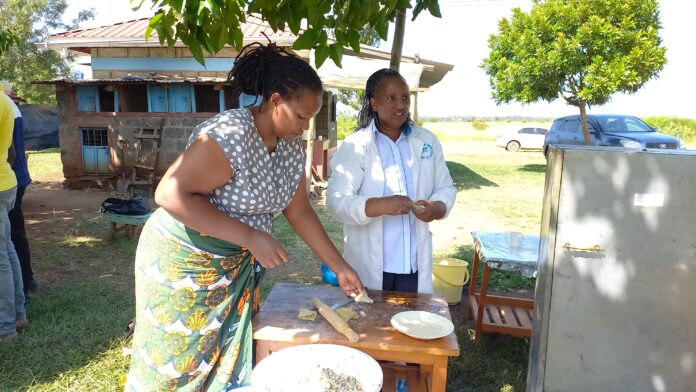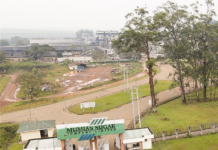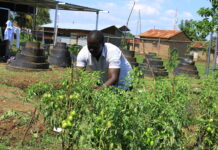By Jane Mugambi
Kirinyaga County, Kenya: Fish farmers in Kirinyaga County were recently trained on fish production and value addition by the Kenya Marine and Fisheries Research Institute (KMFRI) to avoid wastage of fish and also maximize profits.
Jane Kagendi Mbuuba an additional officer at the Sagana Research Institute took farmers through how to make different products from a single piece of fish.
She said farmers have been complaining about the lack of a market and had to find ways to add value to their produce to avoid wastage.
“Farmers have been complaining about the lack of market for their fish, we have come up with ways on how the farmer can add value to his produce,” said Ms.Mbuuba.
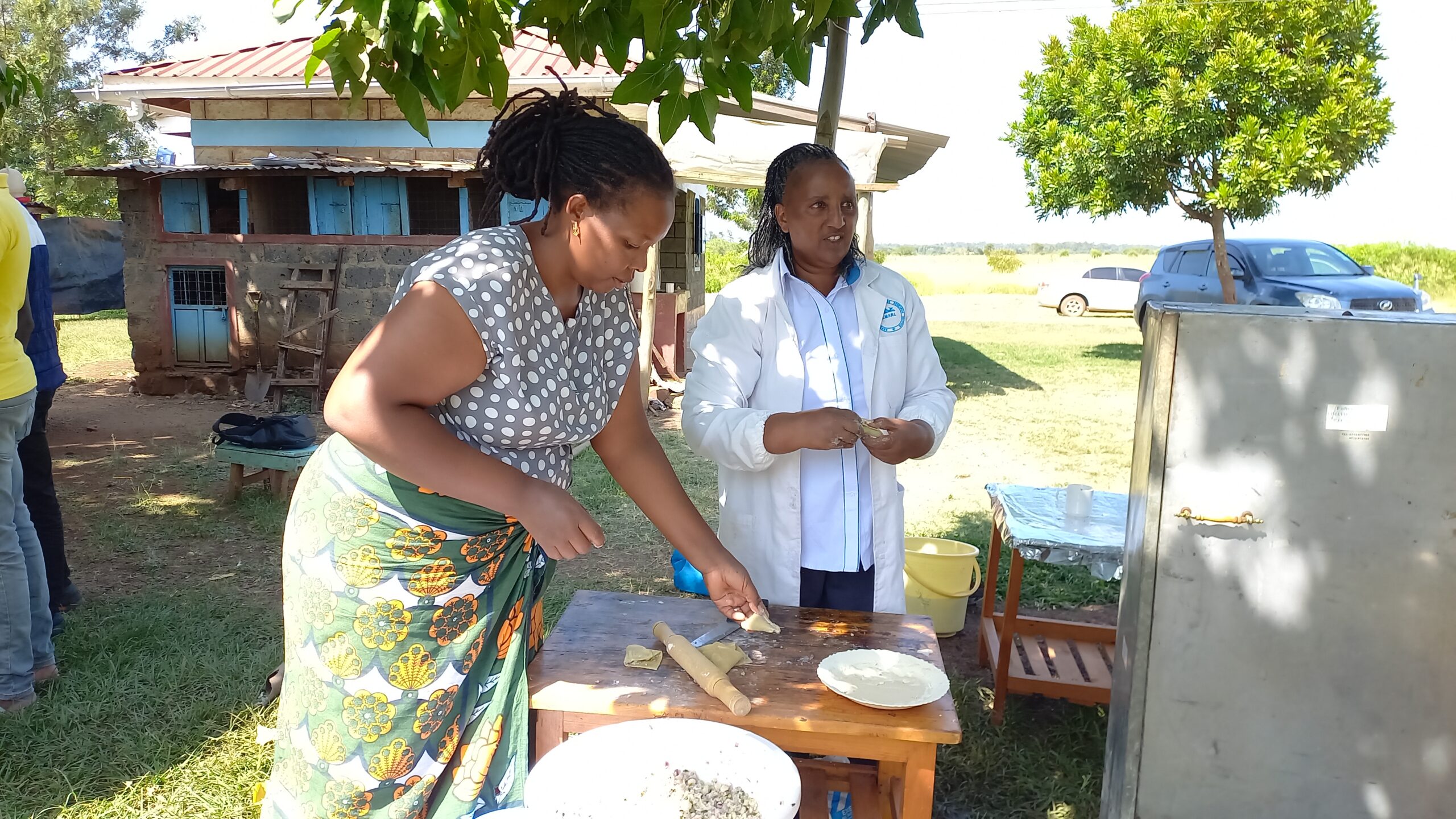
The upscaling of fish-rearing technologies amongst small-scale fish farmers has been sponsored by the European Union, Kenya Agricultural Research and Livestock Organization (KALRO) under the Agrifi Climate Smart agriculture productivity program in collaboration with Caritas Murang’a Catholic Faith based organization running the projects in Murang’a and Kirinyaga counties.
The main objective of Caritas is to work with marginalized and less privileged communities to rebuild and take control of their own lives, restore hope, and manage and govern their own growth and development.
Mr.Joseph Karanja the project coordinator, of Caritas said they have been supporting and facilitating communities in the two counties to improve the quality of life through programs like fish farming aimed at self-reliance, and environmental conservation towards healthy and empowered communities.
The programme has been running for two years where farmers have been taken through all steps of production in a Technology transfer model where farmers assemble in one demonstration farm and are trained on all areas of production.
Pieces of training are conducted from pond establishment to marketing of mature fish and provision of extension services that have given farmers the spirit of farming.
“When we came in, we found farmers had little knowledge about fish farming and after holding several pieces of training we opened up an avenue to entrepreneurship, “Said Karanja.
Mr.Karanja said as the government tries to increase fish production from 180,000 tonnes; fish farming has upscaled from the natural way of lakes, rivers, and oceans to inland fish farming using fresh water so as to increase production.
Karanja said through the use of a new technology model in fish production and a positive approach, fish has been received positively by the communities in central Kenya.
“We only knew of western Kenya where people used to eat fish, Kirinyaga has not been left behind, the rate at which fish is being consumed is high, surpassing their production,” He added. The adoption of fish rearing has been on the rise since 2009-2010 when the government introduced the fish farming Enterprise and productivity programme (ESP) in the county with an aim at enhancing fish production, food security, and economic livelihoods.
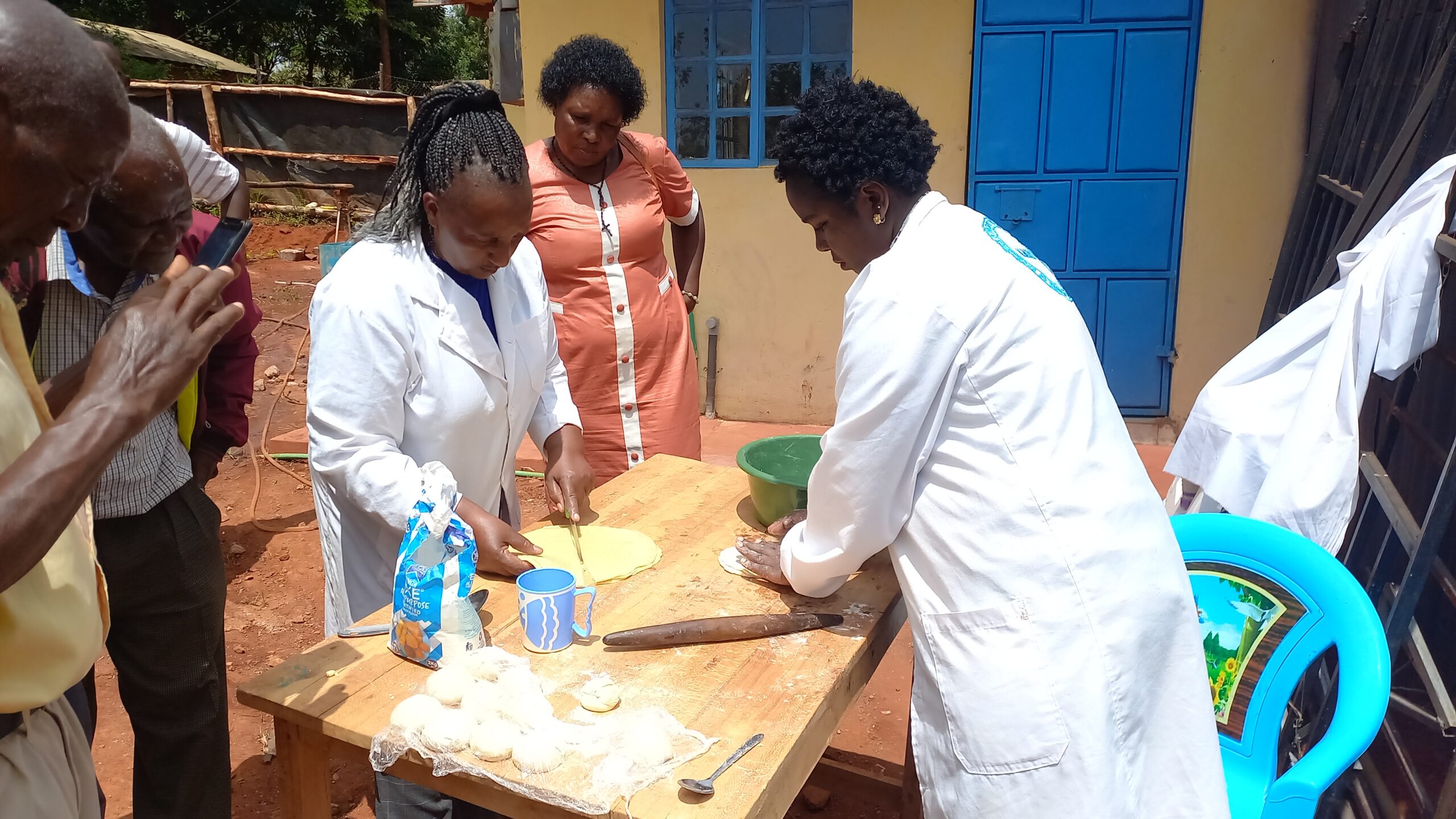
KMFRI in Sagana has contributed immensely to the development of improved strains mostly the F8 Tilapia and the F3 Catfish strains that are well suited for the warm waters in the region; the strains are early maturing and disease resilient hence increased quality production.
The project has had a great impact on fish production mostly on the general management skills of the small-scale farmer and also access to quality inputs and linkages to several fish traders. In addition, the farmers are now skilled in fish value addition which will go a long way towards solving the market challenge. Farmers are trained on over 10 products that can be derived from a small piece.
Fish fingers, fish samosa, fish fillet, Fish Sandwich, fish burger, fish sausage, and fish soup that can be made from filleted Catfish. Other processes trained include fish filleting and smoking.
The skin is also being used to make handbags, purses, belts, and sausage bags. One kilogram of filleted fish can make products worth KSH 3000 at the minimum.
The project got funding of Sh.6.8 million from the AgriFi climate smart Agricultural productivity project supported by the European Union and the Kenyan government.
The project is implemented in three subcounties; Nyangati(Mwea East), Mwea West, Kangai,Muriithi,and Wamumu, and Kirinyaga West(Kiine and Kariti wards).

